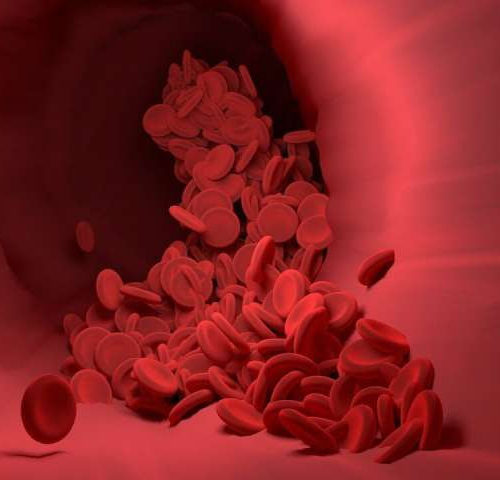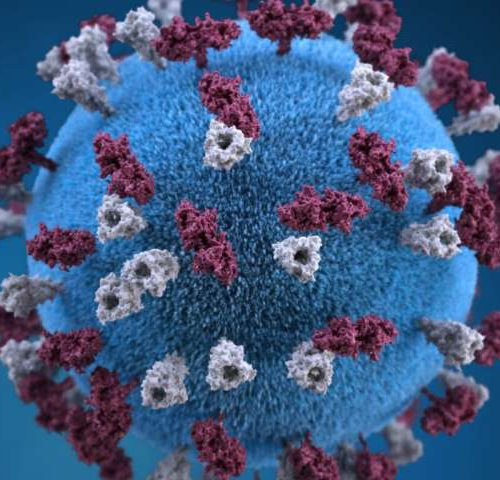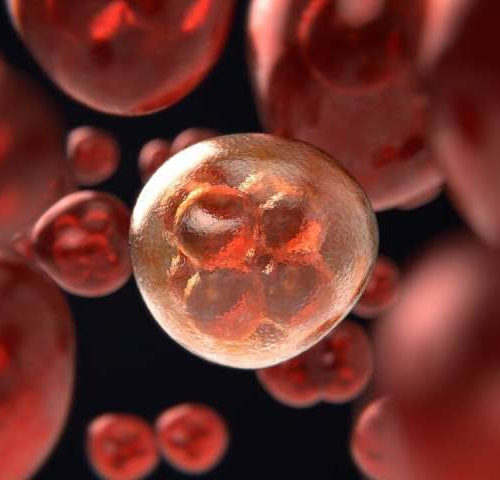by Ecole Polytechnique Federale de Lausanne gulation factor XII (FXII), and the mice without the enzyme had a highly reduced risk of thrombosis without bleeding side-effects. The discovery triggered a race for FXII inhibitors. The Laboratory of Therapeutic Proteins and Peptides of Professor Christian Heinis at EPFL has now developed the first synthetic inhibitor of...
Tag: <span>inhibitors</span>
Chemists build natural anti-cancer compound with lean new process
Scripps Research collaborators develop a way to seamlessly create the compound’s complex structure SCRIPPS RESEARCH INSTITUTE CHEMISTS HANS RENATA, PHD, AND ALEXANDER ADIBEKIAN, PHD, BOTH OF SCRIPPS RESEARCH, SAY THE BACTERIAL EXTRACT CEPAFUNGIN I IS IN THE SAME CLASS AS SEVERAL FDA-APPROVED ANTI-CANCER DRUGS, WITH SOME… view more CREDIT: SCRIPPS RESEARCH JUPITER, FL–Scripps Research chemists...
Researchers detangle protein interaction implicated in Down syndrome and Alzheimer’s
by Brittany Uhlorn, University of Arizona The powerful biomolecular NMR spectrometers at the University of Arizona have allowed scientists to gain molecular details of the interaction between RCAN1 and calcineurin, two proteins that have long been implicated in Down syndrome and Alzheimer’s disease. Credit: University of Arizona From the movement of a finger to the...
A new way to target cancers using ‘synthetic lethality’
by University of California – San Diego With advances in genome sequencing, cancer treatments have increasingly sought to leverage the idea of “synthetic lethality,” exploiting cancer-specific genetic defects to identify targets that are uniquely essential to the survival of cancer cells. Synthetic lethality results when non-lethal mutations in different genes become deadly when combined in...
Antidepressant does not improve post-stroke recovery
by Karolinska Institutet The antidepressant fluoxetine has been suggested as a means to improve brain recovery after acute stroke. However, a large randomized study on stroke patients at 35 Swedish hospitals shows that the drug has no such effect. The study, which was led by researchers at Karolinska Institutet, is published in The Lancet Neurology....
AsEH enzyme: A new pharmacological target against Alzheimer’s disease
Drugs with neuroprotector effects UNIVERSITY OF BARCELONA FROM LEFT TO RIGHT, SANTIAGO VÁZQUEZ, CARLES GALDEANO, MERCÈ PALLÀS AND CHRISTIAN GRIÑÁN-FERRÉ (FACULTY OF PHARMACY AND FOOD SCIENCES/UNIVERSITY OF BARCELONA)…. view more CREDIT: UNIVERSITY OF BARCELONA A UB study published in the journal Neurotherapeutics has validated a new pharmacological target for Alzheimer’s disease. The results show the...
Calcium channel subunits play a major role in autistic disorders
by Universitaet Mainz After 21 days in vitro, hippocampal neurons of the rat form many synaptic contacts and communicate with each other. Within the study such neuronal networks cultivated on multi-electrode arrays were used to invest the synaptogenic function of α2δ-subunits. Credit: ill. by Artur Bikbaev The ability of the human brain to process and...
New Drug Combo Shows Promise in Fight Against High Cholesterol
Adding certain drugs to your statin can reduce cholesterol levels better than taking a statin alone. Here, a Michigan Medicine doctor breaks it all down. If you’ve ever been diagnosed with high cholesterol, also known as hyperlipidemia, your doctor has probably prescribed a statin. And while statins have been the go-to drug for managing cholesterol...
Researchers discover first-in-class broad-inhibitor of paramyxovirus polymerases
by Georgia State University A new antiviral drug that is effective against a broad range of human pathogens in the paramyxovirus family, such as the human parainfluenzaviruses and measles virus, has been discovered by researchers in the Institute for Biomedical Sciences at Georgia State University. The drug binds to and inhibits paramyxovirus polymerases, the unique...
Researchers reveal discovery of new cancer drug fadraciclib
by Institute of Cancer Research Scientists have revealed details of the discovery of a new cancer drug that could be used to treat a range of cancer types, including some blood cancers and solid tumors. The drug, called fadraciclib, was jointly discovered by scientists at The Institute of Cancer Research, London, in collaboration with the...










